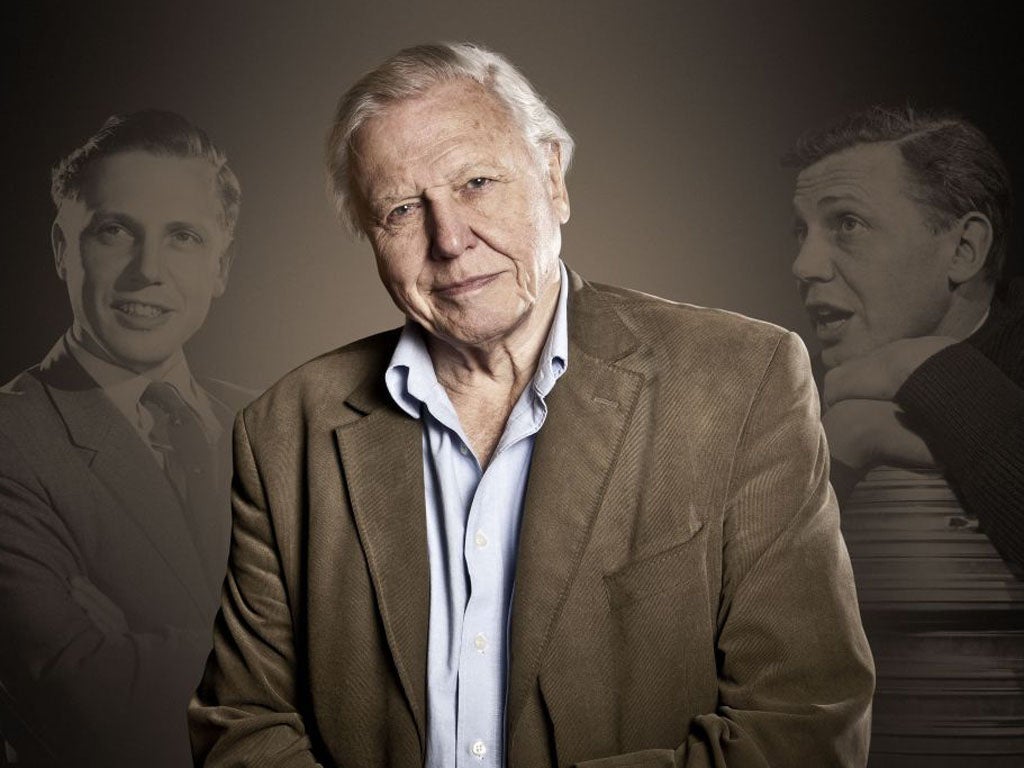Sir David Attenborough: Humans may be an endangered species
'You can't put infinity into something that's finite'

Your support helps us to tell the story
From reproductive rights to climate change to Big Tech, The Independent is on the ground when the story is developing. Whether it's investigating the financials of Elon Musk's pro-Trump PAC or producing our latest documentary, 'The A Word', which shines a light on the American women fighting for reproductive rights, we know how important it is to parse out the facts from the messaging.
At such a critical moment in US history, we need reporters on the ground. Your donation allows us to keep sending journalists to speak to both sides of the story.
The Independent is trusted by Americans across the entire political spectrum. And unlike many other quality news outlets, we choose not to lock Americans out of our reporting and analysis with paywalls. We believe quality journalism should be available to everyone, paid for by those who can afford it.
Your support makes all the difference.Of all the problems Sir David Attenborough has witnessed throughout the natural world, he sees none so pressing as the one facing our own species, which he believes could die out if we don't tackle booming populations.
Himself a patron of Population Matters, a UK charity advocating sustainable human populations, Attenborough believes more women around the world urgently need to be given political control of their bodies.
"It's desperately difficult, the dangers are apparent to anybody," he told The Independent.
"We can't go on increasing at the rate human beings are increasing forever because the Earth is finite and you can't put infinity into something that is finite.
"So if we don't do something about it then the world will do something about it - the natural world that is - we will starve.
"The only straw of comfort or of hope, and even that is pretty fragile, is that wherever women are given political control of their bodies, where they have the vote, education, appropriate medical facilities and they can read and have rights and so on, the birth rate falls, there's no exceptions to that.
"There are still quite a lot of parts of the world where those things don't apply, so those of us who live in the parts where they do apply ought to help the others to have that possibility."
But Attenborough fears that however extensive our efforts, they may not be sufficient in turning the tide.
"It won't be enough," he lamented, "But does that mean we don't do something about it?
"Just because you don't know the answer to the problem doesn't mean you shouldn't say there is one."
The naturalist's next series, Conquest of the Skies, sees him explore the evolution of flight, from stalking bird to gliding reptile, from parachuting mammal to the humble fly.

Watch Apple TV+ free for 7 days
New subscribers only. £8.99/mo. after free trial. Plan auto-renews until cancelled

Watch Apple TV+ free for 7 days
New subscribers only. £8.99/mo. after free trial. Plan auto-renews until cancelled
He acknowledges that nature documentaries are changing fast in the digital age, but insists he won't be changing his approach to them.
"Simply because of my age, I'm out of tune with the way kids watch things," he said.
"It's no good me saying it's either better or worse, but it is different, it's more ubiquitous and attention spans and other factors have changed hugely, beyond recognition.
"The criteria which I work by may seem irrelevant to a younger generation, not to everybody, but overwhelmingly things have shifted and I'd be very foolish if i didn't recognise that.
"But I don't think I can shift the way I do things, the sort of programmes I make are the sort I enjoy making and demand a certain kind of attention to detail.
"A lot of natural history programmes made today are much more about the adventure of finding out than about what is found out, that's OK, but it's different."
Join our commenting forum
Join thought-provoking conversations, follow other Independent readers and see their replies
Comments